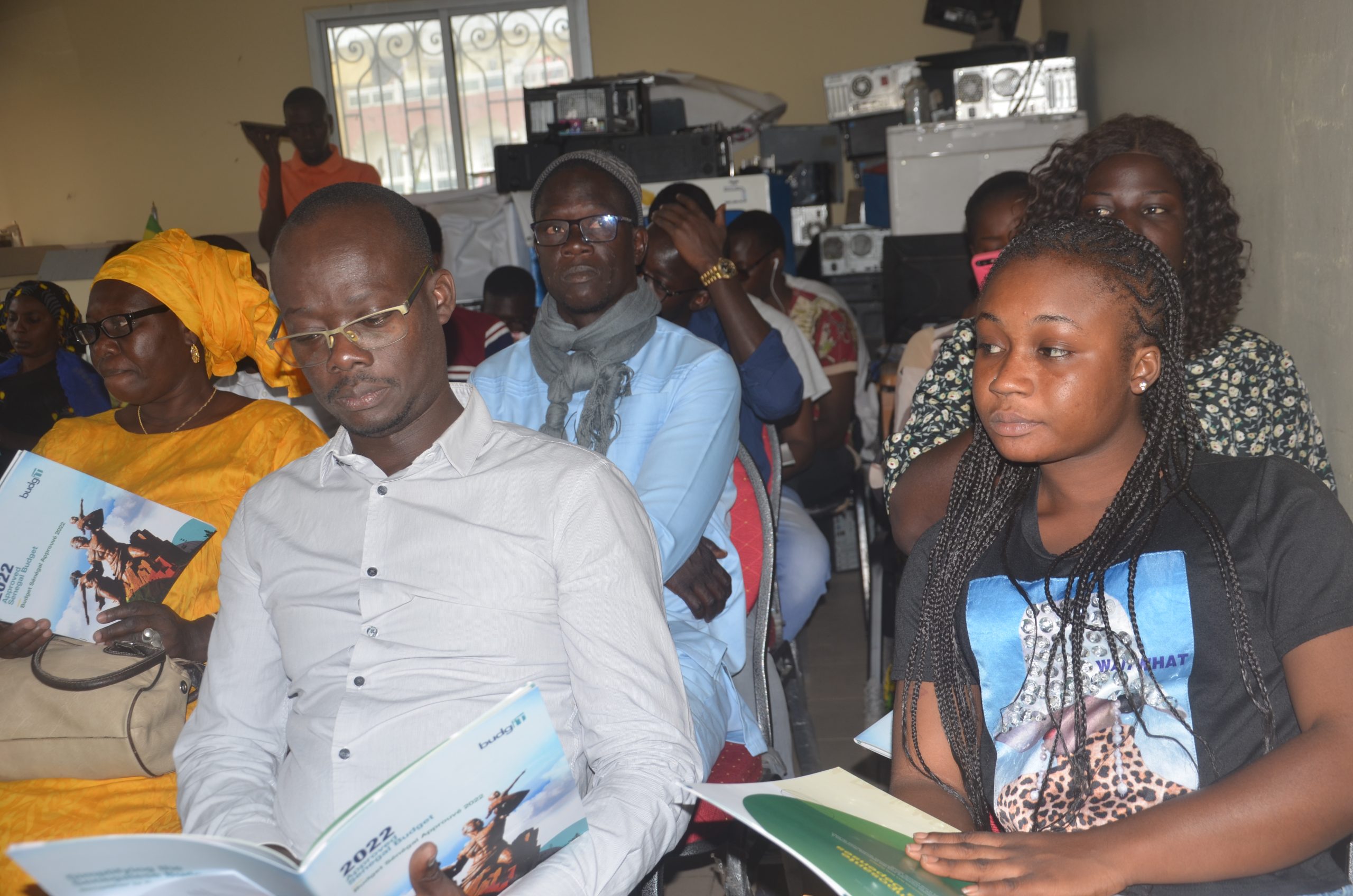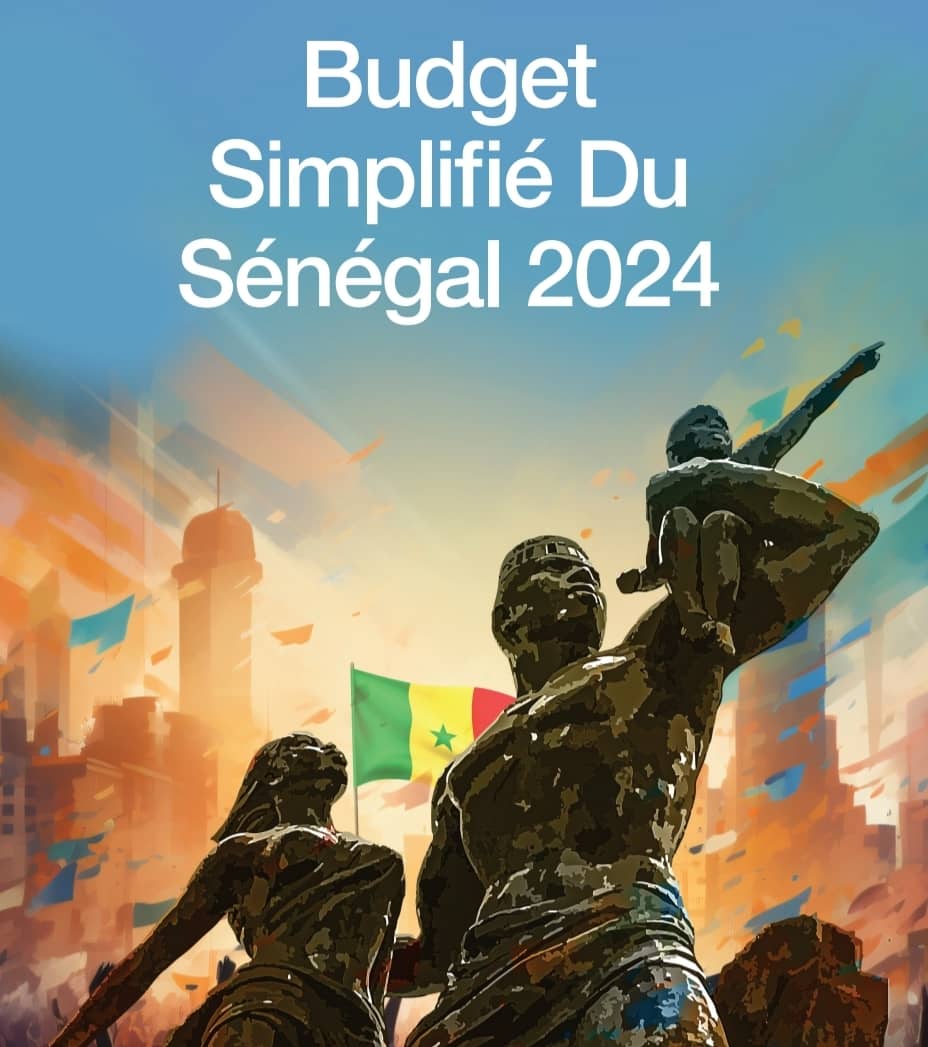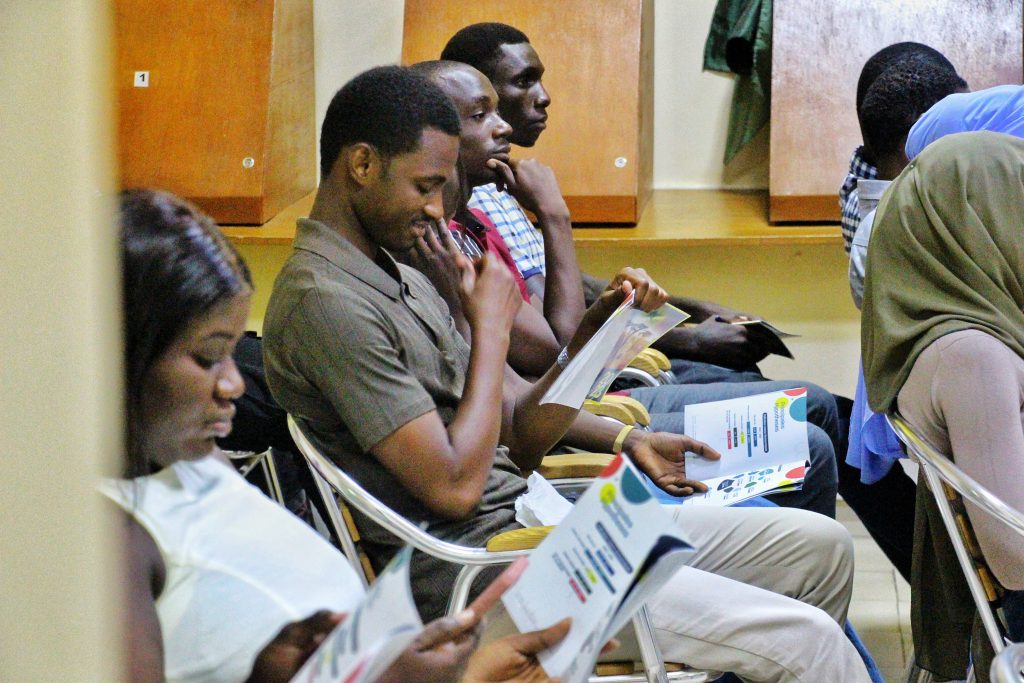Little or no public involvement in the budget development process in Senegal.
Despite the implementation of the yearly budget by government bodies since 1960, citizens have had limited and passive participation in the budget process. The budget document has consistently been lengthy and complex, making it difficult for most people to understand (76 pages in 2023, 154 pages in 2024). However, efforts to involve citizens in budget accessibility have mainly been made by experts, particularly those in civil societies that support fiscal transparency in government processes.
Additionally, it has been found that even members of parliament responsible for approving the budget lack the necessary skills to analyze the budget document. According to the “Open Budget Survey” that the International Budget Partnership carried out in 2021, citizens are not involved in any stage of the budget process. This survey gave a grade of 00 for public participation, which has worsened in 2024.
Integrating citizens into budget procedures would bring about various innovations, such as promoting an inclusive budget that considers citizens’ opinions about priority needs. This would help facilitate budget design and implementation, as these citizens constitute the taxpayers and investment targets. Citizens’ expectations for better service delivery keep increasing while authorities struggle with revenue mobilization. Hence, there is an increase in advocacy for an interactive framework for open debates about revenues, expenditures, public debts, deficits, and capital investments.
Raising citizens’ awareness of Fiscal citizenship and promoting fiscal accountability toward authorities

Like many African countries, Senegal generates revenues from internal and external resources, including tax and non-tax revenues. In 2024, the country is innovating in oil and gas production, intending to produce 100,000 barrels of oil per day. Woodside Energy, a multinational company, has an 82% stake in the project, while the state-owned energy company Petrosen holds the remaining 18%; however, the Senegalese prime minister has promised to renegotiate the contract.
Regardless of the outcome, Petrosen expects the sector to generate more than $1 billion annually over the next three decades. These revenues will enable the government to cover its annual expenditures, including current, investment, and debt expenditures. However, despite their crucial role in this technical process, citizens lack visibility due to public authorities’ lack of transparency and accountability. Authorities maintain an inefficient approach to budget provision, primarily benefiting a small section of budget practitioners, representing less than 3% of the Senegalese population.
Citizens’s Advocacy for Transparency and Accountability in Senegal

Civil society organizations like BudgIT Senegal actively promote access to budget information in Senegal. They achieve this through various methods such as simplifying budget data, creating local-language explainer videos, engaging with the public through radio broadcasts, holding town hall meetings, and initiating youth clubs in universities and training schools. BudgIT Senegal’s main objective is to enhance budget transparency and accountability by encouraging citizen participation and ensuring access to budget information, thus facilitating advocacy for improved service delivery.
In July 2024, BudgIT Senegal plans to launch the project monitoring platform tracka.sn (Tracka Senegal) to improve budget access, transparency, and accountability in government processes. This platform aims to enable Senegalese citizens to track the progress of investments approved by the Ministry of Finance and Budget and to be equipped with information that helps them participate actively in the budget decision-making process.
